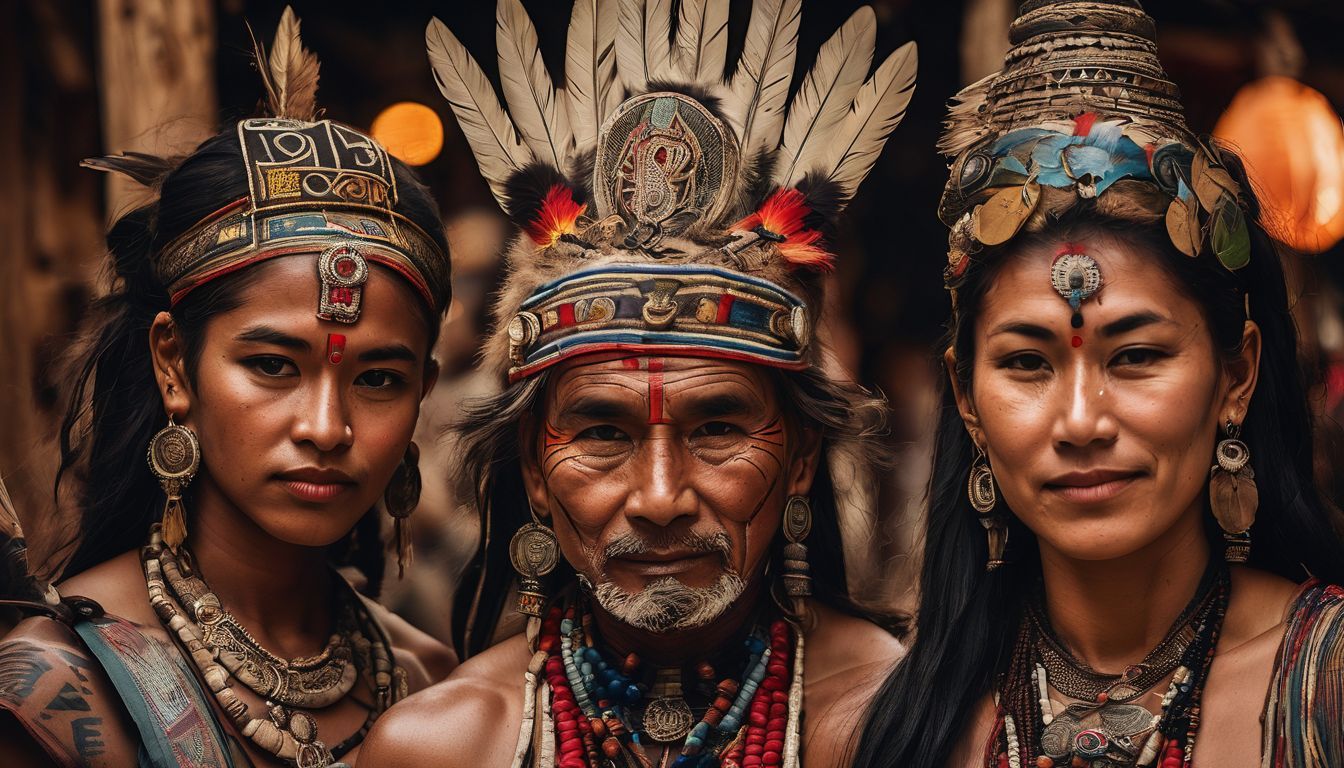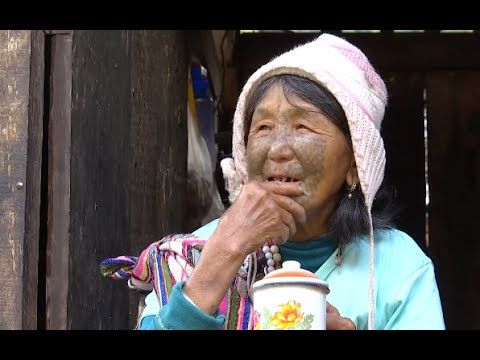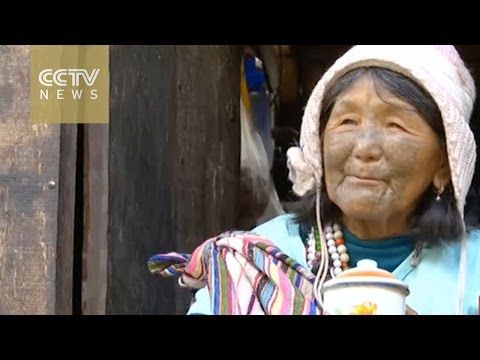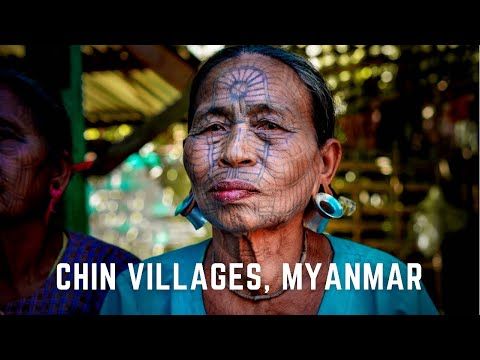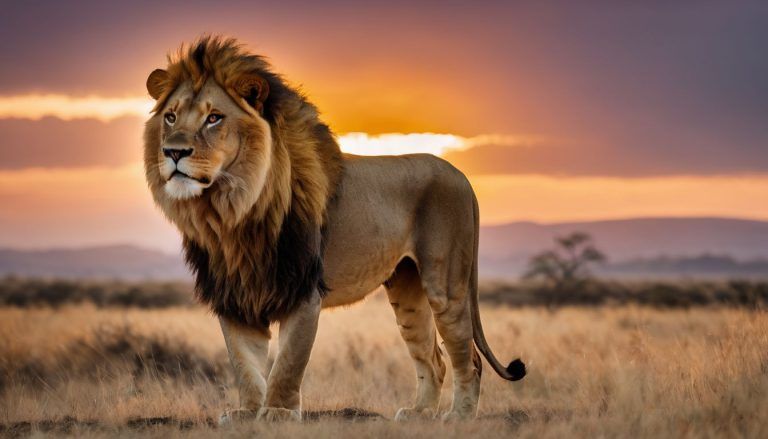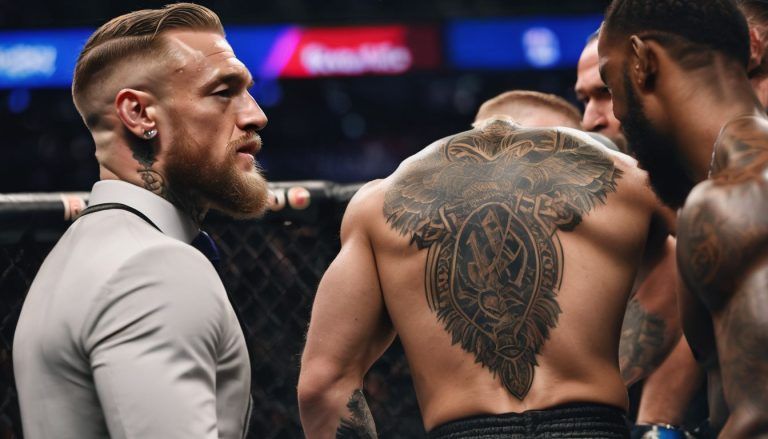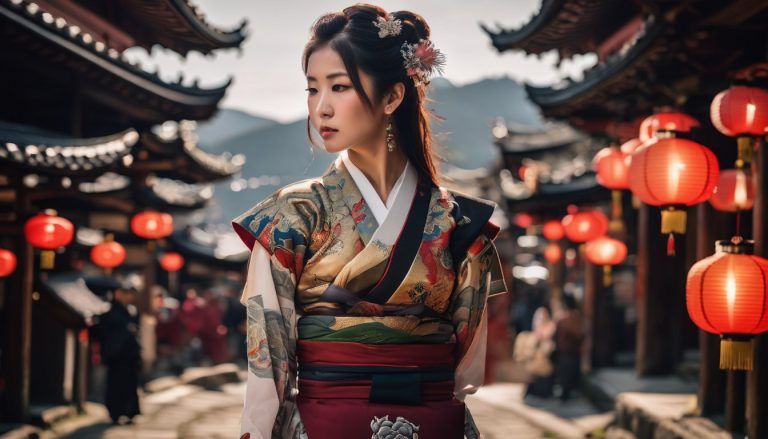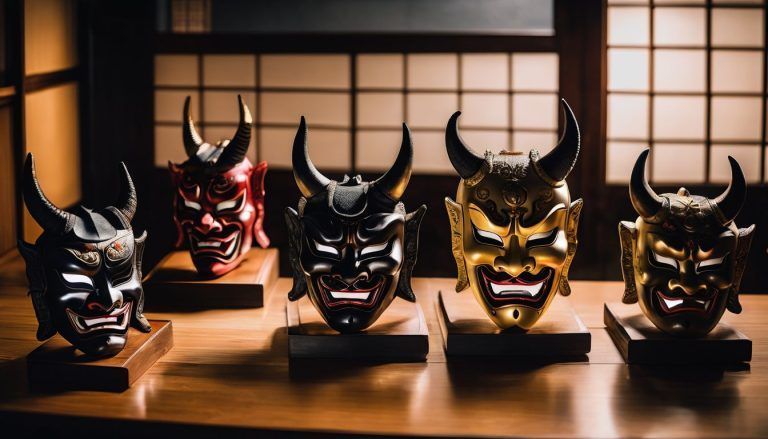The Cultural Significance of Face Tattoos in Different Ethnic Groups
Many people wonder what the intricate patterns inked on someone’s face represent. Facial tattoos are an ancient tradition in numerous ethnic groups, holding deep meanings that go beyond mere decoration.
Our blog will dive into the rich histories and cultural significances behind these powerful symbols, offering insights into their role in heritage and identity. Keep reading to discover a world painted not just on canvas but on skin.
Key Takeaways
- Face tattoos carry deep meanings within various ethnic groups, acting as symbols of adulthood, bravery, and social status. For example, the Atayal people in Taiwan see them as marks of maturity, while Maori ta moko represents lineage and position in New Zealand.
- Religious and spiritual beliefs play a significant role in facial tattooing with practices like Ta moko for Polynesians symbolizing genealogy and spiritual journey, and Yantra tattoos offering protection and strength based on Hindu or Buddhist traditions.
- In modern society, face tattoos have gained popularity due to influence from musicians and celebrities but also face controversy over cultural appropriation when traditional designs are used without understanding their significance.
- While face tattoos have been stigmatized as signs of rebellion in some societies, they remain important markers of heritage. They can impact employment opportunities due to persisting prejudices despite growing acceptance.
- The future perspectives on face tattoos anticipate a blend of traditional reverence with contemporary acceptance. As global appreciation grows for diverse cultures’ heritages, there might be an increase in both interest towards indigenous tattoo arts and integration into mainstream culture.
The History of Face Tattoos in Different Ethnic Groups
Face tattoos have a long history in various ethnic groups, with deep significance in tribal cultures and often serving as religious or spiritual symbols. These markings also functioned as a form of identification and status within the community.
Significance in tribal cultures
In many tribal communities, tattoos on the face are more than just body art; they stand as a rite of passage. For example, the Atayal people of Taiwan view facial tattoos as marks of adulthood and bravery.
They denote not only personal achievements but also social standing within the tribe. Each design carries its own story, often signifying a person’s lineage or particular life events.
For Indigenous women, these tattoos can symbolize milestones such as coming of age or marital status, exemplified in different patterns that convey unique meanings based upon their traditions.
Tribal markings serve as permanent reminders of one’s cultural identity and heritage passed down through generations. Moving beyond personal identification, they uphold the values and historical significance embedded in each community’s way of life.
With profound roots in ritualistic practices, facial tattoos embody sacred body art deeply intertwined with ethnic traditions.
Next let’s explore how religious and spiritual beliefs further influence tattooing across diverse cultures.
Religious and spiritual connotations
Facial tattoos hold deep religious and spiritual significance within many ethnic groups. In various cultures, facial tattoos are believed to symbolize a connection with ancestral spirits or deities, serving as a form of protection and guidance throughout one’s life.
For example, in Polynesian cultures, the practice of Ta moko is considered a sacred ritual with designs representing an individual’s genealogy and spiritual journey. Similarly, among Southeast Asian communities, Yantra tattoos are seen as powerful symbols offering spiritual strength and protection.
The act of receiving these intricate facial tattoos is often accompanied by spiritual ceremonies that connect individuals with their cultural roots and beliefs.
The religious and spiritual connotations associated with face tattoos reflect the profound significance they hold within different ethnic groups. Embracing these traditional practices not only serves as a means of personal expression but also deepens the bond between individuals and their cultural heritage.
Identification and status symbols
Face tattoos have been used as a form of identification and status symbols within various ethnic groups. In some cultures, specific designs and placements distinguish individuals based on their social standing or tribal affiliation.
For example, in Maori culture in New Zealand, facial tattoos known as ta moko are seen as a symbol of prestige and demonstrate one’s lineage and position within the community. Similarly, among the Atayal people in Taiwan, men’s facial tattoos signify maturity and bravery, while women’s tattoos convey different meanings related to societal roles and age.
This practice reflects the deeply ingrained cultural significance of face tattoos as markers of identity and social status within these communities.
In addition to serving as identifiers, face tattoos also hold symbolic meanings that reflect an individual’s role or rank within their respective ethnic group. These intricate designs often carry significant narratives about an individual’s life experiences or affiliations with specific tribes or clans.
The Evolution of Face Tattoos in Modern Society
From temporary tattoos to permanent facial ink, the evolution of face tattoos in modern society has seen a shift in popularity among musicians and celebrities. However, cultural appropriation and controversy have also surrounded this form of body modification.
From temporary tattoos to permanent facial ink
Facial tattoos have transitioned from being temporary designs to permanent ink, reflecting a shift in cultural perceptions and personal preferences. Indigenous communities have long practiced traditional body modification through facial tattoos, with the symbolic significance deeply rooted in their ethnic traditions.
Today, the embrace of permanent facial ink by musicians and celebrities has sparked conversations about cultural appropriation and controversy surrounding these symbolic tattoos. This evolution highlights the evolving perspectives on body art across different cultures and societal contexts.
The Popularity Among Musicians and Celebrities – A Reflective Trend of Cultural Evolution
Popularity among musicians and celebrities
Musicians and celebrities have contributed to the rising popularity of face tattoos in modern society. Prominent figures like Post Malone, Mike Tyson, and Kat Von D have embraced facial ink as a form of self-expression, creating a trend that resonates with their fan base.
By showcasing their unique designs and symbols, they are challenging traditional norms and redefining cultural perceptions of face tattoos. Their influence has sparked conversations about the cultural significance of these tattoos, leading to greater appreciation for the artistry behind each design.
Moreover, their role in normalizing facial tattoos encourages individuals from different ethnic groups to embrace this age-old practice. The visibility of musicians and celebrities proudly displaying their face tattoos also fosters a deeper understanding of the symbolism woven into these ancient traditions.
Cultural appropriation and controversy
The popularity of face tattoos among musicians and celebrities has sparked cultural appropriation and controversy. While these public figures often wear facial ink as a form of self-expression, the origins and deep-rooted significance of such tattoos in various ethnic groups are sometimes overlooked.
This has led to debates about the respectful use and understanding of traditional symbols and designs, especially when they hold spiritual or cultural importance for Indigenous communities.
The dispute surrounding cultural appropriation continues to raise important questions about responsibility, awareness, and sensitivity when it comes to adopting symbols that carry profound meanings within specific cultures.
Cultural Significance of Face Tattoos in Different Ethnic Groups
Explore the cultural significance of face tattoos in different ethnic groups, including Maori facial tattoos in New Zealand and Ta moko in Polynesian cultures. Read on to learn about the rich history and symbolism behind these traditional tattoos.
Maori facial tattoos in New Zealand
Maori facial tattoos, known as ta moko, hold deep cultural significance in New Zealand. The intricate designs are not just a form of body art but also convey the wearer’s genealogy and social status within the community.
Each ta moko is unique to the individual and tells a story about their life, heritage, and accomplishments. Additionally, these traditional tattoos play a significant role in preserving Maori identity and cultural heritage.
The practice of receiving a ta moko is considered sacred among the Maori people, signifying a rite of passage and connection to their ancestors. The revival of this ancient tradition in modern times reflects the pride and resilience of Maori culture amidst colonialism’s impact on Indigenous practices worldwide.
Ta moko in Polynesian cultures
Ta moko, the traditional form of tattooing within Maori culture in New Zealand, holds deep cultural significance. The intricate facial tattoos are more than decorative; they convey an individual’s genealogy and social status.
Each moko pattern is unique to the wearer and holds spiritual meaning, reflecting their personal identity and life journey. In Polynesian cultures, these tattoos are a symbol of pride and connection to one’s heritage.
Ta moko illustrates the person’s place within their community and embodies their family history, achievements, and societal standing.
Moreover, ta moko serves as a visible representation of one’s belonging to specific tribes or communities while conveying messages about a person’s character and accomplishments. These facial tattoos also reflect the preservation of Polynesian cultural traditions through generations.
Yantra tattoos in Southeast Asia
Yantra tattoos in Southeast Asia hold deep significance, with their roots tracing back to ancient spiritual and religious practices. These intricate geometric designs are believed to offer protection, strength, and guidance to those who bear them.
The sacred symbols are often derived from Hindu or Buddhist traditions and are thought to harness powerful energies that aid in personal growth and spiritual development. In Thailand, Laos, Cambodia, and Myanmar, these tattoos are seen as a form of divine armor – providing wearers with both physical and spiritual protection.
As we delve into the cultural significance of Yantra tattoos in Southeast Asia, it becomes evident that these ancient symbols continue to play a significant role in the region’s belief systems.
The Meaning Behind Different Face Tattoos
Different ethnic groups have their own unique designs and symbols for face tattoos, each with its own specific meanings and cultural significance. The placement of these tattoos also holds great importance in conveying the message behind the design.
Designs and symbols
Various ethnic groups around the world use distinctive designs and symbols in their face tattoos to convey specific meanings. For example, Maori facial tattoos often feature intricate spirals and curved shapes that represent genealogy and social status within the community.
In Polynesian cultures, ta moko designs are characterized by bold lines and geometric patterns denoting tribal affiliations and personal achievements. Conversely, Yantra tattoos in Southeast Asia incorporate intricate sacred geometry to symbolize protection, strength, or spiritual empowerment.
These unique designs not only adorn the skin but also serve as a visual language that carries deep cultural significance.
Placement and significance
Different ethnic groups have distinct traditions when it comes to the placement and significance of face tattoos. For example, Maori facial tattoos in New Zealand are known as “moko” and hold a deep cultural meaning.
These intricate designs are traditionally placed on the chin, forehead, and around the eyes to signify social status, genealogy, and personal achievements within the community.
Similarly, Yantra tattoos in Southeast Asia are often placed on specific parts of the face or body for spiritual protection and guidance. In Polynesian cultures, ta moko is not only about beauty but also serves as a representation of one’s identity, history, and accomplishments.
Understanding these traditional placements provides insight into their cultural significance across different ethnic groups.
Current Views on Face Tattoos and Future Perspectives
The current views on face tattoos vary widely, with some cultures embracing them as a part of their heritage and identity while others view them as taboo or inappropriate. As societal perspectives continue to evolve, the future of face tattoos in different cultures remains uncertain.
Acceptance and stigmas
Facial tattoos have faced stigmatization in modern society, often being associated with criminality or rebellion rather than cultural significance. Despite this, there is a growing acceptance of face tattoos as an art form and expression of individual identity.
However, individuals with facial tattoos still encounter discrimination in employment and social interactions due to lingering societal prejudices. The stigmas attached to face tattoos vary across different cultures and ethnic groups, influencing how these traditional practices are perceived in the broader community.
While some may view face tattoos as a symbol of defiance or deviance, it’s important to acknowledge their deep-rooted significance within various ethnic traditions and appreciate the cultural pride embedded in these intricate designs.
Potential impact on employment and social interactions
Face tattoos, especially those with cultural or religious significance, can present challenges in the employment sector. Many organizations still have strict policies against visible tattoos, which could limit job opportunities for individuals with face ink.
Similarly, in social interactions, individuals with visible face tattoos may encounter prejudice and judgment based on societal perceptions of facial ink. Despite this, there is ongoing progress towards greater acceptance and understanding of the cultural and personal significance behind these tattoos within modern society.
Moving forward to “The future of face tattoos in different cultures,” it’s essential to recognize the evolving attitudes and practices surrounding this traditional art form.
The future of face tattoos in different cultures.
Tattooing has been a part of cultural identity and tradition for many ethnic groups across the globe. The future of face tattoos in different cultures will likely continue to evolve as societies become more interconnected.
With increasing awareness and appreciation for diverse cultural practices, there may be a resurgence of interest in traditional face tattoos among indigenous communities. Additionally, as attitudes toward body art change, face tattoos could become more accepted and integrated into mainstream culture, providing new opportunities for individuals to express their heritage through ink on their faces.
As globalization continues to influence cultural exchange, the future of face tattoos in different cultures may see a shift towards greater understanding and respect for the historical significance and symbolism behind these ancient practices.
Conclusion
In conclusion, the cultural significance of face tattoos in different ethnic groups is deeply rooted in tradition and symbolism. These tattoos play a crucial role in identifying individuals within their respective communities and symbolize important milestones or status.
While modern society has seen an evolution in the perception of face tattoos, they continue to carry significant meaning for many cultures around the world. As we move forward, it’s essential to appreciate and respect the historical and cultural importance of these traditional practices while also recognizing their evolving role in contemporary society.
FAQs
1. Why do some ethnic groups get face tattoos?
In many ethnic groups, getting a face tattoo is a significant cultural practice that symbolizes one’s identity, status in society, or personal journey.
2. What are tribal tattoos and what do they represent?
Tribal tattoos often feature bold patterns or symbols that represent the heritage, beliefs, and traditions of specific tribal communities.
3. Can you tell me about musicians with face tattoos?
Musicians with face tattoos sometimes use this form of permanent body art to showcase their creativity, express individuality, or pay tribute to their cultural roots.
4. Do all face tattoos have meaning?
While most face tattoos carry deep symbolism for wearers — like bird tattoos signifying freedom — not all are meaningful; some people might choose designs like barcode tattoos purely for aesthetic reasons.

